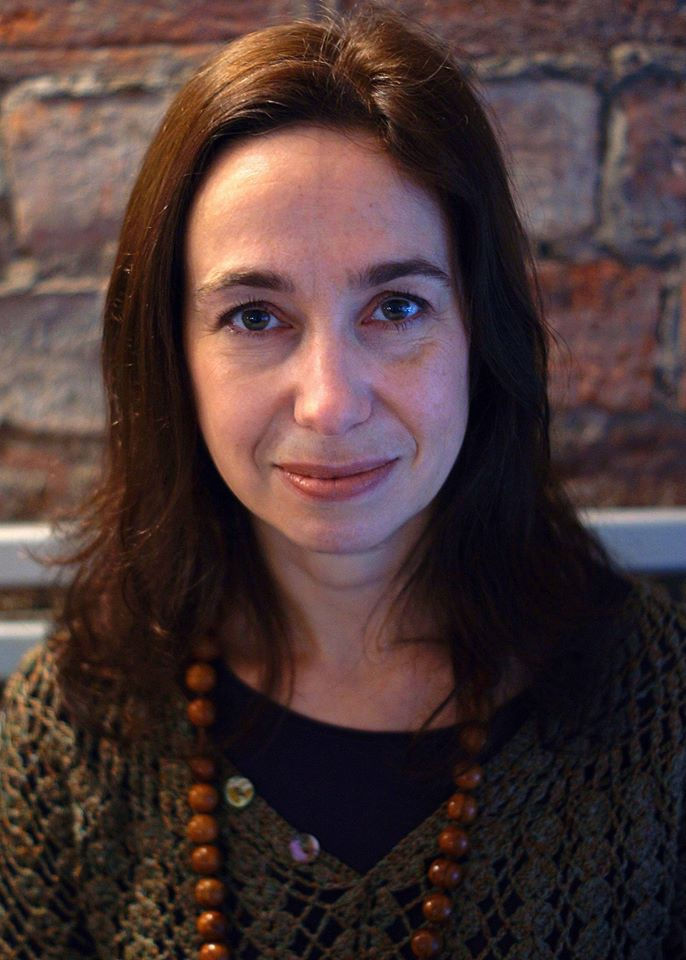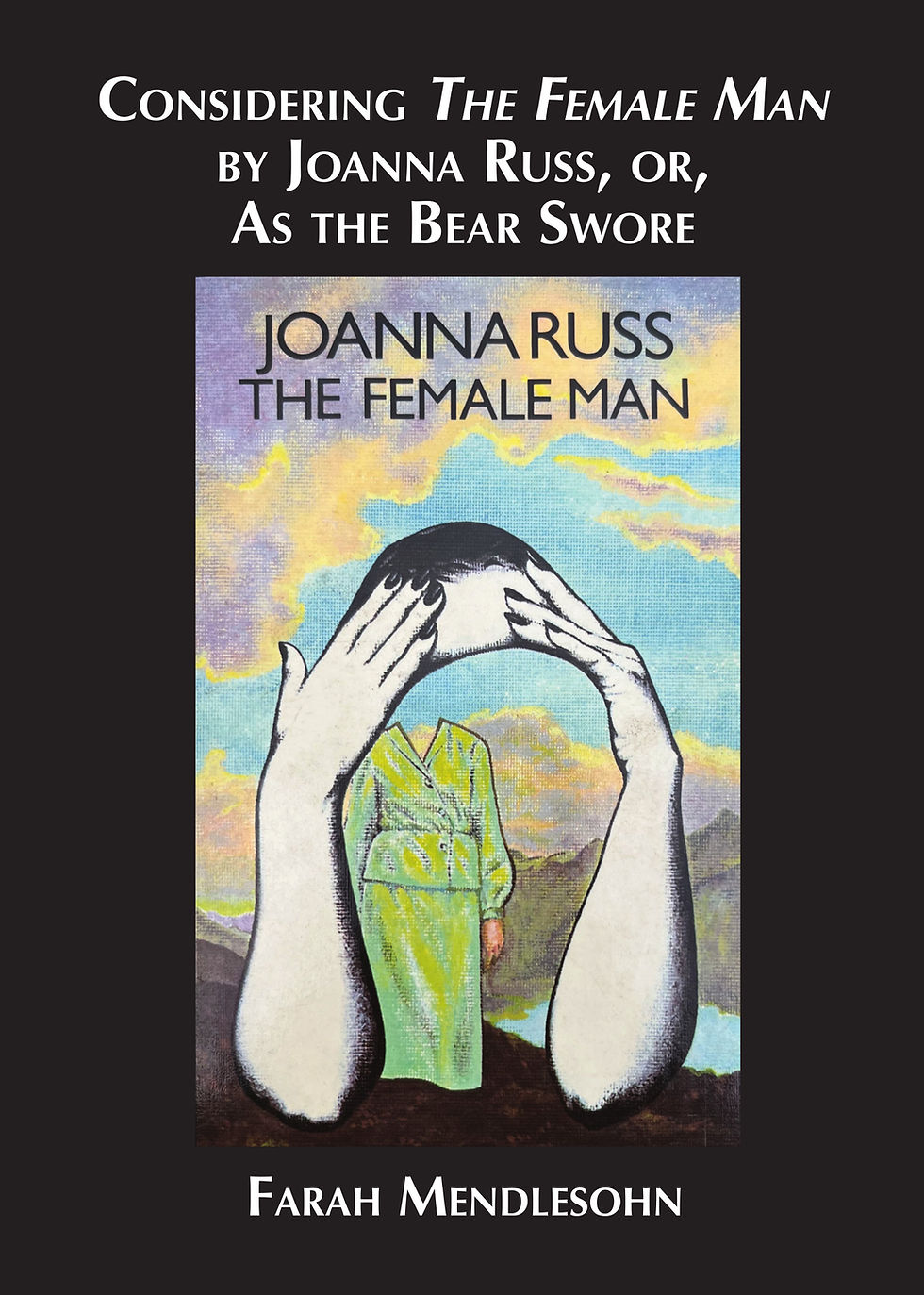Pippa Goldschmidt Joins the Luna Family!
- Nov 17, 2019
- 4 min read

We are delighted to welcome Pippa Goldschmidt to the Luna family! We met Pippa during an Event Horizon, a Shoreline of Infinity event, and we hit the ground running. She is such an easygoing person that by the end of the drink we had chatted about project past and future. Over the course of the years, we kept in touch meeting up at the Edinburgh International Book Festival and other bookish events. It was only a matter of time before we found the project that would bring us together, alongside an incredible cast of scholars and genre writers. This journey started back in 2018 and unites Academia Lunare with our fiction.
Let me introduce you to Uncanny Bodies!
Pippa Goldschmidt worked on this project alongside editors Gill Haddow and Fadhila Mazanderani.
Authors and academics (in alphabetical order) include *roll of the drum*:
Jane Alexander
Ruth Aylett
Christine De Luca
Pippa Goldschmidt
Jules Horne
Jane McKie
nicky melville
Dilys Rose
Naomi Salman
Helen Sedgwick
Sarah Stewart
Alice Tarbuck
Sara Wasson
Neil Williamson
Eris Young
Pippa says:
"One hundred years ago Sigmund Freud wrote an essay about the phenomenon of the uncanny, describing it as ‘not the strange, but the familiar become strange.’ The uncanny is a landscape populated by almost-human doppelgängers and dolls; it’s a place where you feel at home - until home turns against you; it might even be your own body alienated from you through illness.
The uncanny has been around for a long time but it’s doing a good job of keeping up to date; when we observe real or virtual robots displaying a human-like degree of realistic behaviour we react with revulsion, because this ‘uncanny valley’ phenomenon challenges our assumption that humans are unique. Perhaps the uncanny has endured because it undermines simple categorisation. It shifts and changes, always recognisable, always altering. Something that appears to be ‘secure’ starts to slip away. When boundaries can’t be trusted, what can we cling onto?
This is why the uncanny is useful, because it can tell us more about ‘ourselves’ and how our assumptions of what is fixed and coherent is in fact mutable and subject to influence, both internally and externally. It is the usefulness of the uncanny that leads us here, to this anthology. What happens when we stay with the emotion, when we don’t turn away from what disturbs us? And how has the uncanny changed – or remained the same – since Freud’s 1919 essay?
That is the purpose of this project, to reconsider the uncanny. The Science, Technology and Innovation Studies (STIS) unit at the University of Edinburgh plays host to this project and two of its academics, social scientists Drs Gill Haddow and Fadhila Mazanderani have been discussing how diseases and their cures, medical machinery and scientific understanding all impact on our understanding of our own bodies. As unofficial writer-in-residence I’ve long been interested in how we can use fiction to examine these issues.
In the summer of 2018 we held a workshop for writers and academics to discuss whether medical and social advances have made us uncanny creatures. How do the use of prosthetic limbs change our view of our bodies? How do gene therapies change our view of who we are? And how do advances in robotics and AI challenge our assumption that humans are unique?
After this workshop writers such as Neil Williamson, Helen Sedgwick, Jane Alexander and Alice Tarbuck produced work that explored how the uncanny arises in family tensions, how it’s triggered by alienation due to illness, and how machines can heighten our feelings of loss and anxiety.
Academics from social sciences and humanities have responded to these new works by considering what they say about the uncanny, but these aren’t all conventionally written academic pieces. Many of them draw upon personal experiences. As is fitting with this subject, some contributors cross boundaries themselves; Ruth Aylett is a professor of robotics at Heriot Watt and also a poet, drawing upon her expertise to produce a finely considered poem about the similarities and differences between humans and robots.
This anthology is the result. A collection of stories, poems and essays that delve into the depths of what it means to be human in an age of machines and genes."
The marvellous cover art has been created by the very talented John Cockshaw and we cannot wait to do a cover reveal!
We are so excited to bring this project to you, dear Luna readers! We'll keep you posted on the Books in Progress page, but right now we are looking at a 2020 summer release.
Pippa Goldschmidt lives in Edinburgh, Scotland. Her fiction, essays and poems are inspired by science, and she’s the author of the novel The Falling Sky and the short story collection The Need for Better Regulation of Outer Space. Together with Tania Hershman she edited I Am Because You Are, an anthology of stories and essays celebrating the theory of relativity. Her stories, poems and essays have appeared in Shoreline of Infinity, New Writing Scotland and Best American Science and Nature Writing 2014, as well as broadcast on BBC Radio 4.
When she’s not writing, she’s reviewing books; particularly for The Times Literary Supplement and the BBC Sky At Night Magazine.
She’s an unofficial writer-in-residence at the Science, Technology and Innovation Studies unit at the University of Edinburgh, where she started working on the concept of the uncanny and exploring the potential for this upcoming anthology.
Official website: www.pippagoldschmidt.co.uk and you can follow Pippa on Twitter: @goldipipschmidt






Comments